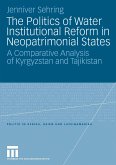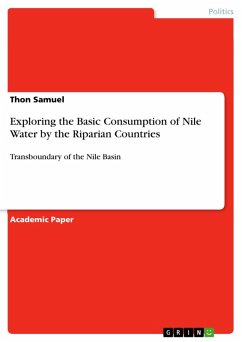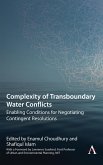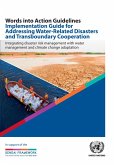Today, when so many countries share the same transboundary river basins, unilateral water management becomes extremely critical. Joint water management, on the other hand, faces many obstacles, because of states' interests in particular function of the water. Water is needed for drinking, household, irrigation, hydro-energy, fishing, navigation, tourism as well as many other purposes, and unfortunately, it cannot meet all needs simultaneously. The satisfaction of one need often impedes the others. In this regard, transboundary river basins often create challenges among states by leading them to negotiate in asymmetric relations.This book is an attempt to address the effectiveness of transboundary water management from a social and political perspective by offering new theoretical underpinnings to understand the success conditions in sharing transboundary water resources. The author focused in the work on three conditions, i.e. institutional conditions and country specific conditions, as well as conditions of regional integrity level and role of external actors. The proposed conditions were tested on two river basins i.e. the successful one in the example of Orange/Senqu river basin and unsuccessful one in the case of Naryn/Syrdarya river basin.
Dieser Download kann aus rechtlichen Gründen nur mit Rechnungsadresse in A, B, BG, CY, CZ, D, DK, EW, E, FIN, F, GR, H, IRL, I, LT, L, LR, M, NL, PL, P, R, S, SLO, SK ausgeliefert werden.









